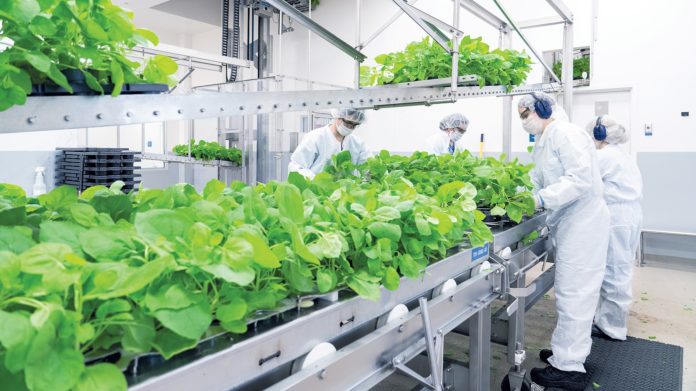Canada’s vaccine rollout has been sluggish compared to that of more powerful blocs like the US or the EU, and central to the issue is the lack of domestic manufacturing. This has led to a damaging dependency on other nations and their vaccine exports, subject to delays and “vaccine trade wars”.
So, what about a made-in-Canada shot? Do we have any candidates in development, and what about domestic infrastructure?
The answer is yes, and there are numerous players at work including Medicago, Providence Therapeutics, and Novavax. All are making progress with trials and regulatory approvals, but in terms of getting manufacturing and distribution up to speed, there remain significant hurdles.
Medicago is a company with experience in responding to emerging viruses, and they received $173 million from the federal government last year to further their vaccine research and develop a manufacturing powerhouse in Quebec City.
“[The aim is] to first develop new technologies to react rapidly, but also to be able to protect our own citizens,” said Senior Director Nathalie Charland to Manufacturing Global.
If things work out, Medicago believes they will deliver 80 million doses of their plant-based vaccine this year, but there’s a catch: despite the vaccine being developed in Canada, the doses will be manufactured in the US. That’s because the Canadian manufacturing facility won’t be up and running and fully independent until possibly 2024.
For now, Medicago is mostly relying on a facility in North Carolina to produce the goods, but vaccine exports from the States are subject to the Defense Production Act. This wartime law, which was used by former President Donald Trump to block the export of N95 masks last year, has carried over with the Biden administration who could act upon it to prevent any exports until all American citizens are vaccinated.
Medicago claims the risk is “minimal” but the possibility remains. The good news is that by the time the domestic facility is up and running, we can expect anywhere from 500 million to one billion doses per year, according to Charland.
Medicago lobbied the government for years about investing in domestic infrastructure so we would be “pandemic prepared”, but the money arrived too late: “The reality is it took COVID to get a decision made for whatever reason… this is what we’ve been talking to them about for months and years,” said former Medicago CEO Bruce Clark to Global News.
Plant-based vaccine
Manufacturing hurdles aside, Medicago are developing something truly innovative: the first plant-based vaccine to reach the commercial level. The product uses “coronavirus virus-like particles” that imitate the structure of the virus and stimulate an immune response without actually introducing any form of the real virus into the body.
The group uses technology that transfers a genetic code over to a plant related to the tobacco family (Nicotiana benthamiana) which then produces the antigen that drives the immune response. It’s a two-dose vaccine combined with a booster from partner company GlaxoSmithKline, and doses are administered three weeks apart. Storage-wise, it has the logistical benefit of only requiring a regular refrigerator, unlike more temperature-sensitive vaccines like Pfizer’s.
In mid-March, Medicago and GSK announced that they had received approval from both Canadian and US authorities to go ahead with a Phase 3 trial based on the positive interim results of the Phase 2 trial.
If all goes according to plan, this candidate could provide Canada with some much-needed vaccine independence.
“At least it’s a company with a presence here, with some manufacturing capability here and we would not have to beg other jurisdictions to please let us have some vaccine,” commented Michael Libman, director of the MUHC Vaccine Study Centre, to CTV News.
UPDATE: Our plant-derived #COVID19 #vaccine candidate with @GSK pandemic adjuvant is moving into Phase 3 clinical trials today. Learn more about our technology and Virus-Like Particles: https://t.co/4LllCVZjI2 pic.twitter.com/rWKp1VJiCm
— Medicago (@medicagoinc) March 16, 2021
Global cooperation still a greater priority
While progress on the home front is to be celebrated, some experts have emphasized that developing a Canadian solution to the vaccine shortage isn’t as important as establishing global cooperation.
“There are so many brilliant scientists all around the world…what we really need is a very robust collaboration,” said Fiona Smaill from McMaster University to Medscape Medical News.
“Not everybody has to invent everything from scratch, so I don’t think it’s critical. We don’t only need to address Canada’s problem because we’re dealing with a worldwide pandemic. I believe that is the priority, rather than a Canada-only solution.”








































